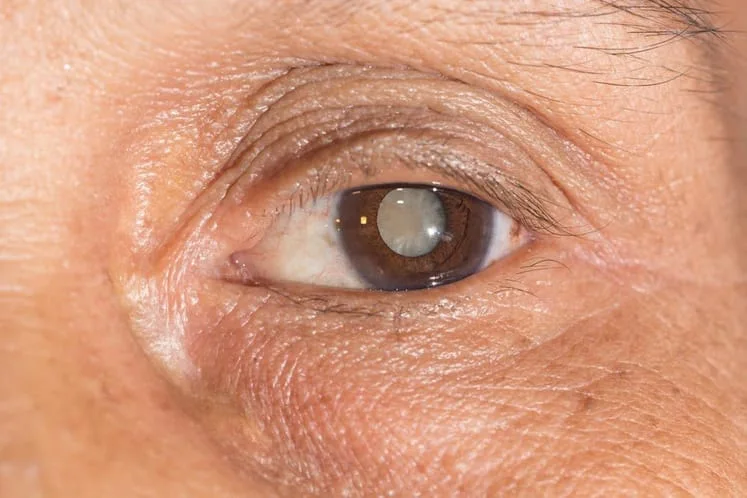Learn about Cataracts with Our Optometry Team in Wichita, KS
Cataracts are one of the most common eye conditions affecting Americans, but many people don't know much about them or how cataracts can affect eyesight. At Wichita Optometry, our eye doctor team is happy to answer your frequently asked questions about cataracts and provide you with individualized eye care so you can optimize your vision at any age.
What Are Cataracts?
A cataract happens when the lens inside the eye becomes cloudy. Normally, the lens is clear and helps bend light into the eye so it focuses properly on light-sensitive tissues inside. If a cataract is big enough, light will not enter the eye normally and a person may start to notice vision changes.
Cataracts can form in one or both eyes.
How Can You Tell if You Have Cataracts?
There aren't usually signs or symptoms when a cataract first develops. However, an optometrist might be able to detect it on a routine eye care exam. When a cataract becomes big enough, a person may notice signs and symptoms like:
- Blurry vision
- Increased sensitivity to glare
- The appearance of "halos" or circles around bright lights
- Decreased color vision
- A cloudy or milky discoloration in the center of the eye itself
What Causes Cataracts?
Advancing age is a leading cause of cataracts. About 20 percent of people over the age of 65 have at least one! As we get older, the proteins in our lens tissue tends to lose its normal structure and elasticity. This is thought to be due to age-related tissue changes and cumulative effects of a lifetime of other risk factors, including
- Family history/genetics
- Severe nearsightedness (myopia)
- Other underlying health conditions like diabetes, hypertension, and obesity
- A history of smoking
- A history of excessive sunlight exposure
- A history of eye injury or surgery on the eye
- Prolonged use of certain medications, including hormone replacement drugs, steroids, and statins
- Excessive alcohol consumption
How Are Cataracts Treated?
Cataracts can't be cured and it's not always possible to prevent them, although certain lifestyle changes (like wearing UV-blocking eyewear and not smoking) may reduce your risk or keep one from getting bigger.
If a cataract impairs vision, it can be removed surgically by a doctor of ophthalmology and replaced with an implant called an intraocular lens. Our Wichita optometry team can offer essential pre- and post-operative care to ensure your cataract replacement surgery goes well. We also provide additional services including updated prescriptions and low-vision strategies and tools to help you see better.
Are You Concerned about Cataracts?
We serve our Wichita community in four convenient locations! Call (316) 942-7496 to schedule an eye care exam and get screened for cataracts.

